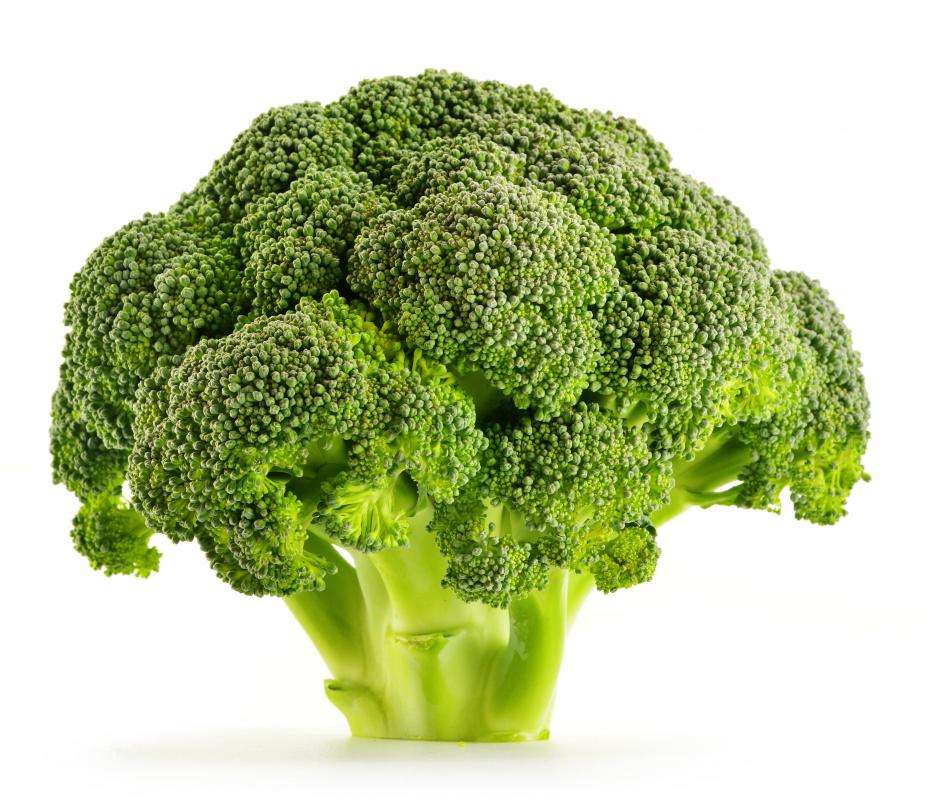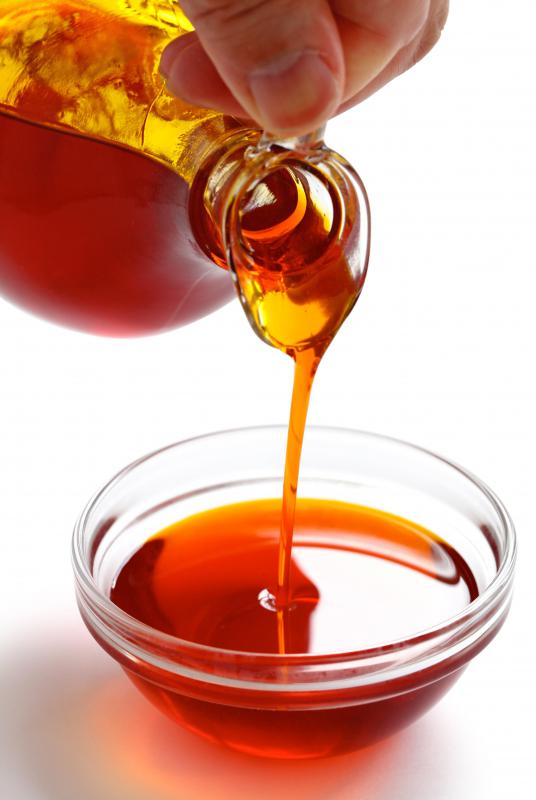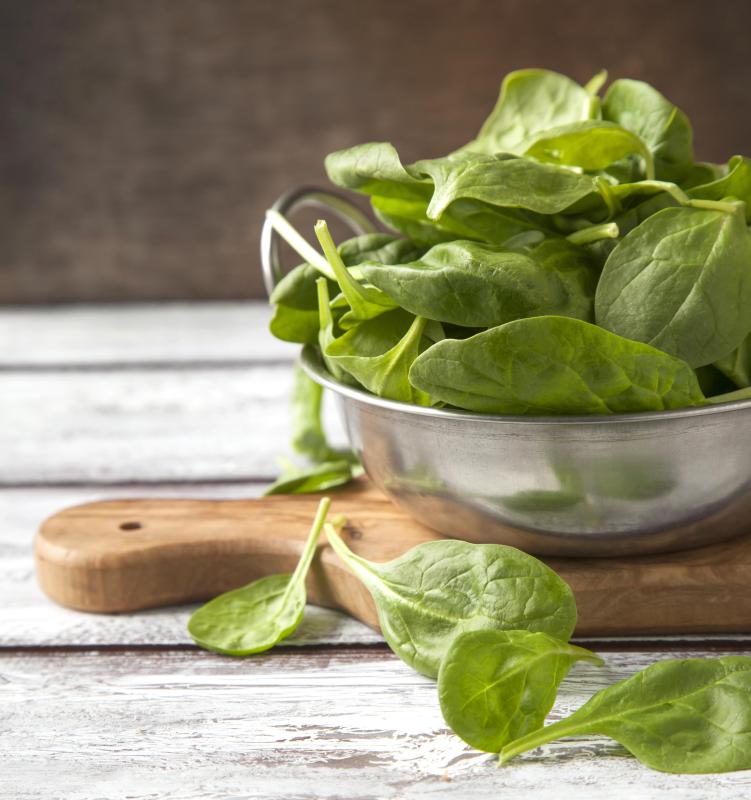At TheHealthBoard, we're committed to delivering accurate, trustworthy information. Our expert-authored content is rigorously fact-checked and sourced from credible authorities. Discover how we uphold the highest standards in providing you with reliable knowledge.
What is Beta Carotene?
Beta carotene is a carotenoid substance naturally found in plants that serves as an accessory to photosynthesis. It is primarily responsible for the pigment in orange colored fruits and vegetables, but also contributes to the pigment in red, yellow, and green colored fruits and vegetables. Though some food sources are rich in beta carotene, including cantaloupe, broccoli, spinach, and palm oil, carrots are the major supplier of this substance in most people’s diets.
Beta carotene is accepted as an essential human nutrient, especially when there is a deficiency of vitamin A. In fact, when a vitamin A deficiency is suspected, blood tests measuring the levels of this substance are often performed as a result. Beta carotene is believed to have antioxidant properties in addition to its provitamin A function. Some studies have also concluded that it may have a positive impact on the immune system as well as anticarcinogenic effects.

Most official nutritional and health organizations, including the National Cancer Society, recommend consuming five servings of fruits and vegetables per day. A sufficient amount of beta carotene would be absorbed by following these guidelines. However, recent research has indicated that this substance may only be beneficial when it is consumed in its naturally occurring state, such as in fruits and vegetables, rather than in supplemental form. Further, it could be harmful for certain individuals to consume beta carotene supplements. Clinical trials have shown that supplements may increase the rate of lung cancer in smokers.

Like most other nutritional substances, beta carotene can be obtained in adequate amounts by eating a well-balanced, healthy diet including fruits and vegetables. However, a doctor may recommend supplements for certain patients. Indicators of a vitamin A deficiency include vision problems, dry or inflamed eyes, unexplained hair loss or skin rash, and recurring infections. Before considering any nutritional supplements, you should consult your doctor.
AS FEATURED ON:
AS FEATURED ON:















Discussion Comments
Please help me. I have quite a few questions about beta-carotene and Vitamin A and need some advice.
My doctor and pharmacist haven't got a clue.
Every day for several years, I have been taking 16,000 IU of Vitamin A, not the beta-carotene kind, to keep me from swelling up like a grape. If I stop taking it, my feet start to swell up, after about three days. They get bigger and bigger and bigger and the rest of my body starts to show visible swelling as well. It takes many days of lying flat on my back with my feet raised, to get back down to a normal size. I have no other physical problems, thankfully. My doctor has had me extensively tested.
So, if anyone can help with the following questions, I would appreciate it very much.
A good friend said beta-carotene would do the exact same things as the Vitamin A I'm taking now, but be non-toxic. Is she correct? How much beta-carotene should one take per day?
My pharmacy sells only one type of beta-carotene. The detail pane on the label reads “Gel Cap: Vitamin A – 500% of the daily value.” Is the 500 percent only made by your body if it needs it? What happens to the rest? Does the rest of the beta-carotene get stored in body fat or is it, completely, removed by natural body functions? If the beta-carotene is stored in the body, how long does it stay in the body?
I remember that years ago, maybe the 1960's, seeing a TV program of doctors going to Africa and giving children really huge shots of Vitamin A. The shot was supposed to be of benefit to the children for many years. Now it seems that this might have been very harmful. I'm worried. Will taking beta-carotene instead will be better for me, both short and long term? I hope someone can answer these questions for me. Thanks so much for taking the time to respond.
eating carrots is healthy and they contain more nutrients. but keep in mind, that excess vitamin A can lead to toxicity, since it is not excreted from our body.
@anon109034: Is your skin slightly yellow/orange? like the palms of your hands and feet, your knuckles, armpits, elbows, knees, or neck? if so they you may have hypercarotenemia. it's not harmful, and it won't affect you in any way except for the discolouration of your skin, but it can sometimes be confused for liver diseases.
Make sure you get your liver function tested every six months or so by a simple blood test, as you might think that the discolouration of your skin is due to the carrots, but it could be hiding a liver disease. if your skin isn't discolored, then you're perfectly fine. don't worry though, carotenemia is nothing serious. i have it too.
I eat about 1kg bag of carrots a day. I'm not sure if that is good for me, but I just cannot stop eating them. I'm a bit worried. can you let me know if this is good or bad.
All those orange and red summer fruits and vegetable, such as watermelon, apricots, cantaloupe, red peppers and tomatoes are bursting with beta carotene. Beta carotene seem to help lungs stay young, and make breathing easy.
Post your comments